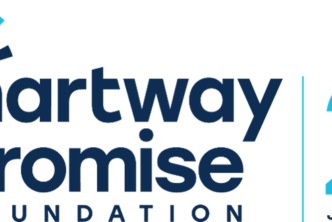You help your members afford life – we’ll help you do that. To aid with your public relations, media relations and marketing workload, we’ll provide you with personal finance content each month to use in your credit union’s communication channels.
Here’s the story…
Our Consider This release contains useful information and tips to share with your members in your longer-format communication tools, including newsletters, blogs and/or website articles. Use this story however you’d like!
Paying down credit card debt…
Just when you thought 2020 was devoid of good news for Americans – here’s a small financial reason to smile! U.S. consumers paid down a record amount of credit card debt this past year.
That doesn’t mean American consumers don’t still harbor a fair amount of credit card debt. According to a report from the Federal Reserve, Americans began 2020 with $1.09 trillion in credit card debt – an all time high. That number came about from a $76.7 billion net increase during 2019, according to a WalletHub study.
But an unprecedented pandemic did not cause the dramatic increase of credit card debt to continue. In fact, a downward trend was almost immediate. A slight paydown of consumer credit card data is normal in the first quarter of any year, according to the WalletHub study. However, in the first quarter of 2020 consumers paid down $60 billion in credit card debt – the biggest paydown ever.
The WalletHub study found that consumers continued paying off credit cards as this unprecedented year continued. In Q2 and Q3 combined, consumers paid down $58.8 billion more in credit card debt. That’s the first time in more than 30 years that credit card debt has dropped from April through September in the U.S.
It’s not that Americans stopped using credit cards in 2020. According to a Money.com study, 70% of U.S. consumers said they have no plans to cancel or close existing credit cards because of the pandemic. However, Americans have begun reducing discretionary spending during the pandemic. They’ve also taken advantage of lifelines offered though the CARES act – including the $1,200 stimulus check and the $600 a week available to unemployment recipients through the end of July – to pay down credit card debt.
“Sometimes, you need a crisis to wake you up to what you need to be doing, and I think a lot of people are experiencing that right now,” Bradley Klontz, a Boulder, Co.-based CFP and financial psychologist told Money.com.
Tips to paying down credit card debt
Paying off credit card debt can seem daunting – especially if you’ve amassed quite a bit. But with determination and some solid advice, living credit-card-debt free is possible. Here are some tips from Credit.com to get started in the right direction:
- Get organized – Gather all the information for every card on which you’re carrying a balance. Make a not of the balances, interest rates, due dates and minimum payment for each card. Add up all the minimum payments on each of your credit cards to determine how much you must pay each month just to stay on top of credit card bills.
- Consider paying off the card with the highest APR first – Paying off the highest interest rate first makes the most monetary sense because it cuts out spending on a large chunk of interest. Try boosting your payments on the card with the highest APR and paying the minimums on the remaining cards. Once that card is paid off, move on to the card with the next highest APR.
- Or consider paying off the card with the lowest balance first – This method may not make as much monetary sense as paying off the highest interest rate card first. However, this may be a method that’s easier to stick to for those who have a difficult time staying motivated without quick gratification. Enjoy the endorphins that come from paying off that lowest balance – then keep paying off from there!
- Create a budget – You can follow every tip for paying down credit card debt known to man, but if you’re not spending within your means, you’ll likely languish in the same cycle. Create a budget that works for you, leaving wiggle room to pay down that credit card debt.
- Be realistic – Of course, it’s tempting to throw as much money as possible at outstanding credit card debt. However, it’s important to remember that you still need to spend money on necessities (food, clothes, rent, etc.). So be realistic about how much you can put toward your credit card debt each month.
For Social Media…
Here are a few timely messages in 280 characters or less for your credit union’s social media presences.
#CreditUnions
- Do you know the differences between a credit union and a bank? Find out more: https://yourmoneyfurther.com/
- Credit unions offer lower rates on car loans than banks! Learn more: https://yourmoneyfurther.com/
- CUs exist to serve their members, not make a profit for shareholders. Learn more: https://yourmoneyfurther.com/
- Get a jump on your finances by visiting your local credit union today. Learn more: https://yourmoneyfurther.com/
#CreditCard
- Did you know Americans paid down a record amount of credit #creditcard debt in 2020? Want to know how you can pay down your debt? Find out more here: Link to release/article
- Drowning in #creditcard debt after the holidays? We’ve got your help here: Link to release/article
- Want to know one way 2020 was beneficial? (Hint – it has to do with American’s #creditcard debt). Click here for more: Link to release/article
If the Media Calls…
We send Consider This topics to media outlets at least once a quarter in order to position credit union employees (you!) as experts in the personal finance space. Here are a few talking points you can use if a member of the media reaches out to you about this topic.
Credit Card Debt in 2020:
- Americans began 2020 with an all-time high of $1.09 trillion in credit card debt
- That came from an increase of $76.7 billion in credit card debt in 2019
- But Americans paid down credit card debt quickly in 2020
- Consumers paid down $60 billion in credit card debt in Q1 2020
- Consumers paid down a combined $58.8 billion more in credit card debt in Q2 and Q3 combined
- That’s the first time credit card debt has dropped from April until September in the U.S. in more than 30 years
- Americans haven’t stopped using credit cards – they’ve just modified how they spend and pay down debt
- 70% of Americans say they have no plans to cancel or close existing credit cards because of COVID
- Americans have taken advantage of stimulus offered through the CARES act to pay down credit card debt





